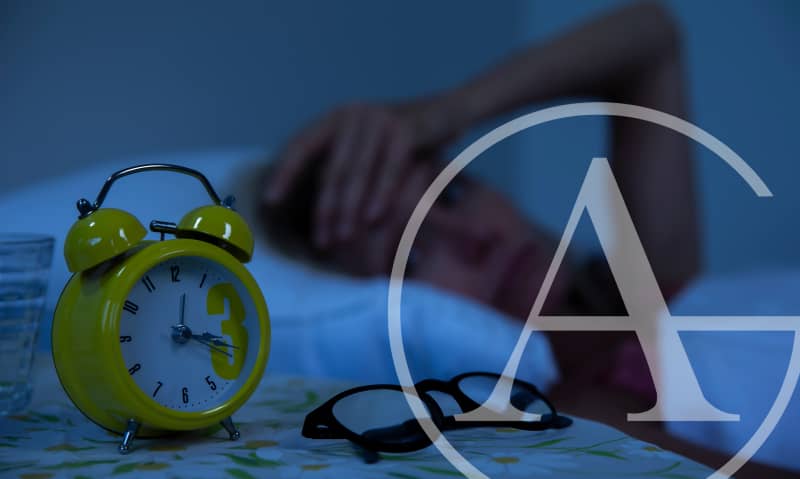7 Dangers of Untreated Obstructive Sleep Apnea (and What to Do About It)

Snoring results in a lousy night’s sleep for everyone. But when it happens because you have obstructive sleep apnea, you have a more significant problem. If you see a doctor or dentist for sleep apnea, you take care of your health in more ways than you might realize.
There are many dangers of untreated obstructive sleep apnea, like making you a threat to other drivers on the road. Fortunately, several devices for sleep apnea can help you keep your condition under control.
What is obstructive sleep apnea?
Obstructive sleep apnea (OSA) is a sleep disorder that causes your breathing to be interrupted while you sleep. These interruptions last longer than 10 seconds and occur an average of five times per hour. You do not take in enough oxygen during these periods because your tongue or other body tissues block your upper airway.
OSA is classified by severity and ranges from moderate to severe.
What are the symptoms of OSA?
Many people have OSA and experience no symptoms, while others never feel rested after a full night’s sleep. Snoring is the most common symptom, but other symptoms include:
- Snoring that is interrupted with periods of quiet
- Snoring that begins with a loud sound when you start breathing again
- Morning headaches
- Sleepiness throughout the day
- Easily irritated
- Trouble remembering things
- Depression
OSA is often diagnosed by participating in a sleep study, followed by treatment from an experienced doctor or dentist.
The dangers of untreated obstructive sleep apnea.
New sleep apnea treatments are always becoming available, but what are the risks of leaving OSA untreated?
1. Increased Risk of Developing Certain Physical Health Conditions
People with OSA are at a higher risk of developing high blood pressure, heart disease, and type 2 diabetes. When you wake up often throughout the night, your body’s hormones are off balance, boosting your blood pressure and dropping your oxygen levels.
A lack of sleep also disrupts your body’s production of insulin, which can lead to developing diabetes.
2. Higher Rates of Anxiety and Depression
Poor sleep patterns increase your chances of becoming depressed and experiencing anxiety. You may experience irritability, difficulty thinking or concentrating, and changes in appetite.
3. Memory Loss
Sleep is necessary for resetting your brain. When OSA is left untreated, recalling details from the past becomes challenging because your brain cannot process and recover when you wake up frequently during the night.
4. Work Performance Suffers
When someone with untreated sleep apnea goes to work after a night of frequent waking, they feel tired and unfocused. Your productivity decreases, and you have no motivation to complete your work. You become moody and unable to concentrate, hindering your career advancement.
5. Oral Health Suffers
Often people who suffer from OSA often grind their teeth. Not only can this destroy your teeth, but it can damage the jawbone and related joints. This can cause you to experience headaches, ear pain, neck stiffness, or popping and clicking noises.
Mouth breathing is common among those who have sleep apnea. Breathing through the mouth causes it to become dry, which contributes significantly to plaque, inflammation, and periodontal disease, eventually leading to tooth decay.
6. Daytime Sleepiness
The sun may have been up for hours, but you still feel tired. This symptom is commonly experienced by those who suffer from OSA. It can disrupt everything from your mood to how you think.
7. Weight Gain
Sleep apnea can cause you to gain weight. Your body may release excess ghrelin, a hormone that makes you crave carbs and sweets. When you are constantly tired, you might not be interested in the foods that will convert to energy, causing you to maintain extra weight.
What can you do to treat OSA?
Understanding the signs of sleep apnea is the first step to getting treatment started for your condition. If you suspect you are suffering from undiagnosed OSA, contact a qualified professional to help you get into a sleep study.
Once diagnosed with OSA, you should seek treatment from the best dentist in Dallas, TX. Various treatments are available that include surgical and non-surgical approaches. Regardless of your treatment, it is critical to protect your health.
Non-surgical treatments include:
- Continuous positive airway pressure machines (CPAP)
- Use of oral appliances
- Positional therapy
- Oropharyngeal exercises
- Nasal resistors
- Weight management
- Physical exercise
- Avoiding alcohol
- Sedative medication at bedtime
CPAP is the most common treatment for most adults with OSA.
Oral Appliances for Sleep Apnea
Devices worn in the mouth during sleep can help keep the soft tissue in the airway from collapsing. These appliances are becoming more popular as a treatment for OSA and other sleep disorders.
There is help available for your obstructive sleep apnea disorder.
You don’t have to suffer because of untreated obstructive sleep apnea disorder. Dallas Cosmetic Dental can help. Our team is experienced with treating sleep apnea patients, and you may be a candidate for neuromuscular dentistry and a PX3 mouthguard. Contact us today to learn how we can help treat your OSA.